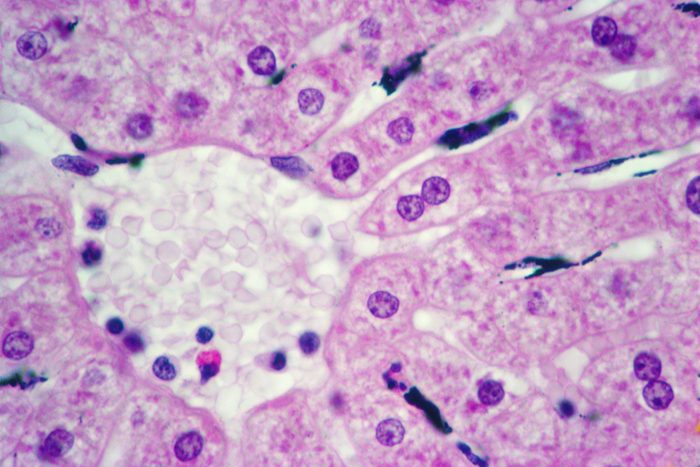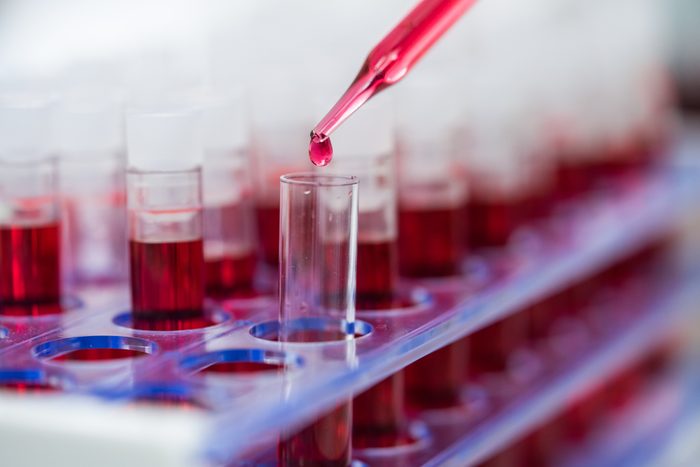
Recent data from the National Institutes of Health (NIH) revealed that 47% of the 100,530 liver disease deaths in 2021 were attributed to alcohol. This is a thought-provoking statistic when you consider that the liver “removes toxins from the body’s blood supply, maintains healthy blood sugar levels, regulates blood clotting, and performs hundreds of other vital functions,” according to Columbia University’s blog. The upside is that experts say detoxing your liver is not only mentally and emotionally transformative, but can also bring about significant physical healing—sometimes detectable in just a few weeks.
Christina Lindenmeyer, MD, a doctor of gastroenterology and hepatology at the Cleveland Clinic, points out that the extent of the liver’s healing potential can depend on the initial damage and any related complications. The number-one step to start healing the liver is to abstain from alcohol—but Dr. Lindenmeyer suggests healing your liver is not just about what you avoid, but also about what you embrace.
To start, eating to support your liver is also paramount. Healthy foods for your liver provide essential building blocks like proteins and vitamins for repair. Dr. Lindenmeyer says foods such as fish, nuts, olives, and leafy greens are known to be beneficial for the liver, as they’re packed with nutrients that aid in repairing liver cells and boosting overall liver function. Drinks that are good for the liver can also support the recovery process.
Signs of liver improvement can appear within weeks after making lifestyle changes. However, as Dr. Lindenmeyer emphasizes, recovery is a highly individual process. Read on for five key signs your liver is healing from alcohol.
Signs your liver is healing from alcohol

1. Improvement in blood work
When it comes to tracking liver health, liver function tests that can be done through routine lab work are crucial. These tests, including measurements like alanine transaminase (ALT), aspartate transaminase (AST), and others, provide insights into the liver’s condition. High levels usually signal liver stress or damage.
Encouragingly, a 2021 review in the NIH’s Alcohol Research journal revealed that as the liver heals from alcohol-induced harm, these enzyme levels can return to normal. This is a sign of the liver’s recovery and regenerating ability.
The review also noted that in addition to improved liver health, other values—like insulin resistance, blood pressure, and cholesterol levels—improve, largely thanks to abstaining from alcohol.
This Is the Alcoholic Drink That’s Least Harmful to Your Liver, Says a Liver Doctor

2. Increased energy and mental clarity
The Cleveland Clinic suggests that a telltale sign that your liver is on the mend is a noticeable increase in energy levels. When the liver is impaired due to alcohol, it struggles to filter toxins and metabolize nutrients effectively, leading to chronic fatigue and brain fog. As it recovers, these functions become more efficient, resulting in a boost in your overall energy and a decrease in feelings of tiredness and lethargy. You might find yourself more active and less reliant on stimulants like caffeine—which can give your liver a nice healthy break, too.

3. Better digestion
A recovering liver recalibrates its production of bile, which is essential for breaking down and absorbing fats and certain vitamins. As your liver heals, you may experience fewer digestive issues like indigestion, bloating, or irregular bowel movements. An improvement in digestion signifies that your liver is more effectively processing foods and that your body absorbs nutrients more efficiently.

4. Easing of abdominal swelling
Another of the clear signs your liver is healing from alcohol is a noticeable decrease in abdominal swelling. This condition, known as ascites, typically arises when the liver’s capacity to produce albumin—a protein that keeps fluid from leaking into your tissues—is diminished. Additionally, ascites can be caused by heightened blood pressure in the liver’s veins. The Cleveland Clinic suggests that as liver function enhances, this swelling may decrease to deliver better protein synthesis and fluid regulation in the body.
Carlos Romero-Marrero, MD, a gastroenterologist from the Cleveland Clinic, points out that approximately half of the patients with liver cirrhosis (which is a condition where scar tissue replaces healthy liver tissue that can be due to chronic alcohol abuse) experience ascites. The fluid can accumulate in the abdomen or legs, and while mild cases may be managed with a low-sodium diet, more serious instances might need medications like diuretics in the form of water pills or procedures like paracentesis for fluid drainage.

5. Brighter skin and eyes
As your liver recovers from alcohol-related damage, another noticeable sign can be seen in your skin and eyes. Symptoms like a sallow complexion, dark circles, and jaundice—a yellowing of the skin and eyes—may begin to fade. This improvement is due to the liver becoming more efficient at filtering toxins, leading to healthier skin and restoring natural brightness in the whites of your eyes.
Jaundice in particular is a severe indication of liver issues, cautions Dr. Romero-Marrero. It occurs when bilirubin, a byproduct of red blood cell breakdown, accumulates in the bloodstream because the liver cannot process it effectively. In a healthy state, the liver absorbs bilirubin and transforms it into bile, which the body expels. Dr. Romero-Marrero emphasizes the seriousness of jaundice as a symptom of liver failure. If you notice jaundice, it’s vital to seek medical evaluation from your doctor.
It’s important to note that the speed and extent of these signs can vary greatly depending on individual factors like the severity of liver damage, overall health, and lifestyle changes. Continuously supporting your liver through a healthy diet, avoiding alcohol, and regular medical check-ups are essential for sustaining liver health. Always consult your healthcare provider for a better understanding of your liver’s condition and personalized guidance.
For more wellness updates, subscribe to The Healthy @Reader’s Digest newsletter and follow The Healthy on Facebook and Instagram. Keep reading:
